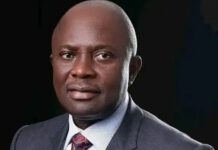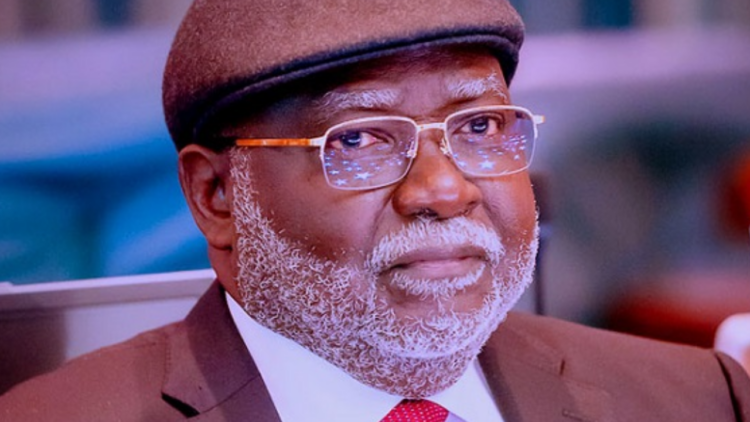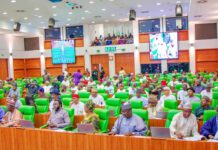Nigeria’s Minister of Finance Dr. Ngozi Okonjo-Iweala while speaking at the 2012 Isaac Moghalu Foundation Leadership Lecture criticized the nations current educational framework, saying that the roles of the various arms of government in the current system are not clearly stated out.
Okonjo-Iweala who is also the Coordinating Minister for the Economy said that Educational administration in Nigeria is made complex by Education being on the Concurrent List of the 1999 Constitution
“The regulatory system in the sector is largely ineffective, and this reflects on the curriculum, especially in many private schools of foreign origin. Pupils in many of these schools are taught little or nothing in Nigeria.
“Take also the duplication we see in the administration of Senior School Certificate Examination (SSCE). Why should there be two parallel examination bodies – the West Africa Examination Council (WAEC) and the National Examination Council (NECO) – conducting the same type of examinations for the same level of students within same academic session, making it difficult to maintain standards at the same level? Surely, there is need for a rethink here,” the minister said.
She also pointed out that although government had made basic education through junior secondary school free and compulsory; the country was yet to record increase in enrolment rates found in many countries.
According to her, the national primary net enrolment rate which stood at 64 per cent in 1999 fell to 58 per cent in 2010.
“The quality of education and associated learning outcomes are poor. We see mass failures in SSCE conducted by WAEC and NECO year in year out. For instance, only 5.75 per cent of the 803,360 private candidates that sat the WASSCE exams in May/June 2010 received five credits and above (including English Language), while 10 per cent received five credits and above (including mathematics)
“Several universities are producing graduates that lack the right skills needed to perform tasks required in their chosen fields, making it difficult for them to get employment. If you look hard enough, you may even find graduates who have never used a computer before. Academic infrastructure in many of our premier institutions is dilapidated. Nigerian universities are no longer the citadels of learning we once knew them to be.
“They have lost their place in global rankings. Now in facts, Nigerian parents are sending their children to other African countries like Ghana and South Africa to study, spending hundreds of millions of dollars in tuition fees alone, not talk of those that send their wards to the United States or the United Kingdom, at significant costs. Imagine the benefits of investing these in our own university system,” she said.
The minister called for a paradigm shift, saying there was need for quality education to drive the country’s growth.
“That is what Korea did to transform their economy. Korea Developed a programme of ‘education for economic growth’ in 1948, focused on the supply of technical manpower as needed for economic development,” she added.
In his remarks, Governor of the Central Bank of Nigeria (CBN), Mallam Sanusi Lamido Sanusi, said: “We have societies where there is corruption, but they have leaders who are very competent. There is corruption in Asia. Now as we talk about merit, let’s look at our constitution.”
Our constitution says you must appoint a minister from every state of the federation, which is fine. But does it set the minimum qualification that is expected?
“As a country, do we ask the right question? In Malaysia, before you are presented to parliament to be considered for consideration, there is a screening process. So, we should never sacrifice merit on the altar of diversity,” Sanusi added.
Earlier, the chairman of the event, Chief Julius Adelusi-Adeluyi, stated that only an improved educational system will address the current challenges faced by the country.
-ThisDay





If only they can hear our vocies. We have elected/appointed them into that sit. pls let them do sth. all hands are nt equal, nt everyone have the money to send thier wards abroad. check all those in the corridors of power almost all of them studied abroad, Why?. Why i will going to have a president or minister who has his/her B.sc. to Ph.D all in Nigeria.
i was dissapointed when i typed 100 best university in africa.this gave me the reason y many nigerians fly abroad for a safe and standard education.i hereby announce this to my dear brilliant nigerians.FOR HELP ON HOW TO GAIN ADMISSION IN GHANA CALL BOBBYALURA EDUCATIONAL CENTRE,ACCRA ON +233542434395.make a choice to take a chance or u wil remain in dis dirty system.am a testifier.thanks
Nigeria has good educational policy but cannot implement it because of corruption. Th ministries of education in states frustrate the policy for pecuniary reasons. When policies are made, implementation should be supervised. this idea of education on concurrent list is what states are using to kill good policies.